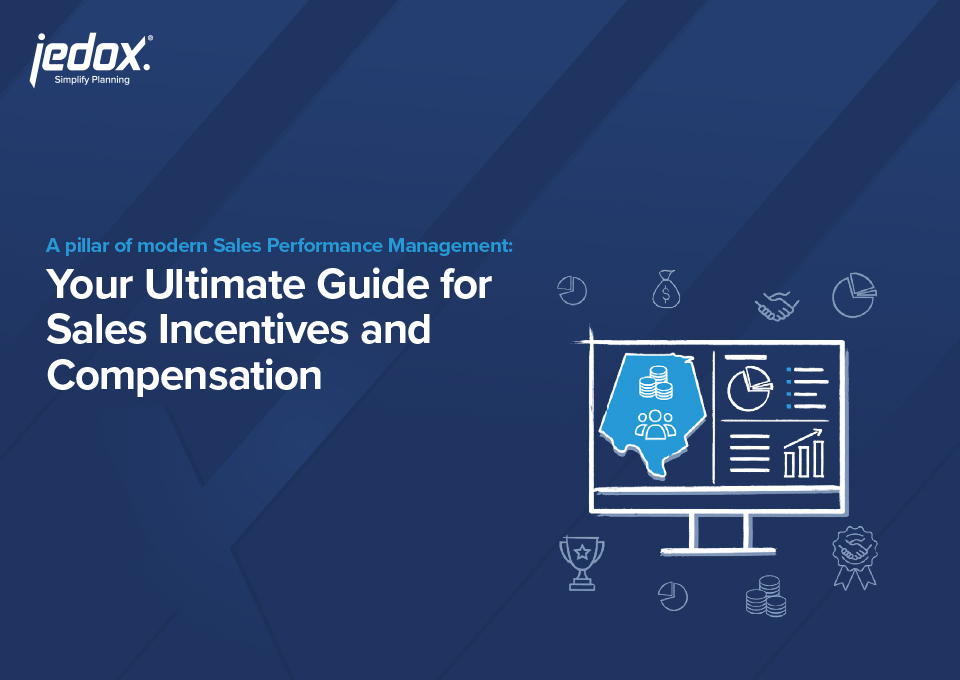
3 key factors for a sales compensation plan that sparks motivation
A sales compensation plan that motivates your sales team to reach their maximum potential is something every sales executive dreams of. Ultimately, the most success is achieved through effective motivation. This blog post outlines three key factors that transform your sales compensation plan into a powerful source of motivation.
A lack of oversight into performance, delayed compensation payments, unsatisfactory sales incentives and commission payments. Many aspects of sales compensation management can be headache-inducing and cause frustration in a team, or in the worst case scenario, lead to high staff turnover. But a solid sales compensation plan that provides transparency and flexible will support improved long-term performance.
What is a sales compensation plan?
A sales compensation plan is the set of planning processes that determine the amount of money a salesperson will be paid and typically includes base salary, commission, bonuses, sales incentives and benefits. The sales compensation plan provides individual salespeople with an overview of the compensation for their performance. But how exactly does a sales compensation plan spark motivation?
How sales compensation sparks motivation
Effective motivation is paramount to your company’s success – if motivation is dwindling amongst your sales team, in turn, your sales and turnover may suffer.
A lack of motivation amongst your team can happen for a variety of reasons, for example, the sense of feeling unappreciated, poor communication or a lack of transparency in the process can all cause motivation levels to drop. The level of compensation and the quality of your sales compensation plan are often the deciding factors in whether sales professionals decide to join your team, if they then decide to remain as part of the team on a long-term basis, and if they deliver top-notch performances. As the head of your sales team, you have to ask yourself: How happy is my team with the existing sales compensation plan? Is it accurate and transparent?
The three key factors for a motivating sales compensation plan
These three key factors for a sales compensation plan can spark motivation:
1. Accuracy: Accurate calculation of compensation
Sales crediting, sales compensation accruals and commission review: Calculating commission for complex deals frequently requires time-consuming Excel spreadsheets to be filled out manually. Even though spreadsheets can be error-prone, 47%–70% of businesses still use them for sales compensation management. Using a dedicated sales performance management solution will remedy this problem: The more accurate your sales compensation plan is, the less your sales team will feel the need to double-check calculations instead of doing what they do best. Sales.
2. Transparency: The complete view from beginning to end
Honesty and transparency are the foundation of any successful relationship built on mutual trust and respect. Transparency in all internal and external sales processes will motivate your sales team and should therefore be a building block of your sales compensation management. When employees are clear about what is expected of their performance, as well as their actual performance results, they are kept in the loop, see the value that they are adding and feel involved in the process as a whole. Taking these steps to ensure transparency does not just create motivation and trust but establishes loyalty.
These three tips will help you to enhance transparency in sales compensation management:
- Transparent processes and plans depend on respectful and open communication – for example by setting out the overall sales goals for the year.
- Have a one-on-one conversation to set out each team member’s personal goals. For these goals to spark motivation, they need to be able to understand and agree with them.
- Plan regular follow-up meetings – these are essential to keep all team members up-to-date and feel they are a part of a transparent process.
Create trust by keeping your team in the loop – give them real-time access to accurate, relevant data that is seamlessly integrated into their CRM tool. Endless spreadsheets and outdated sales reports simply don’t allow for full transparency.
3. Flexibility: Variable adjustments, reporting and reviews
Digital transformation is in full swing. And this, coupled with general uncertainty in many business environments means greater flexibility is required. To keep morale high amongst your team, it is important to emphasis that your sales compensation plan is not set in stone. Modern Sales Performance Management encompasses flexible adjustments to compensation management, reviewing this, as well as creating reports.
The benefits of a flexible sales compensation plan:
- Resilience: A flexible compensation plan increases resilience and reduces errors.
- Test scenarios: A flexible sales compensation plan will also allow you to test different scenarios so that you can identify the best path for your team to take. That means you can continuously adapt the plan according to the situation.
- Development: Whether your corporate goals change or you enter a new market: Your plan remains flexible and can be adapted to new situations at any time.
Make sure that you can see the detailed, personal performance of each employee whilst also having an overview of the team’s performance as a whole – this will ensure you can always react flexibly. Furthermore, it means your employees can focus on what really counts, while you can keep your eye on the ball, ready for any potential changes to your sales compensation plan.
Accuracy, transparency and flexibility made possible by modern Sales Performance Management
For an accurate, transparent, and flexible sales compensation plan you should do away with error-prone spreadsheets. A modern sales compensation management solution will make your compensation processes more accessible to the whole team. The automation of complex, manual compensation processes mean they receive compensation payments swiftly and on time. It also means you can avoid mountains of tedious paperwork and allows your sales team to focus on what is really important.
Strong compensation management supports a successful Sales Performance Management approach
We’ve learned that having a highly qualified sales team alone isn’t enough for successful sales performance. In the words of the American CEO, Norman Ralph Augustine, “Motivation will almost always beat mere talent.” Without motivation, even the best salespeople don’t generate the sales of which they are truly capable. By paying particular attention to accuracy, transparency and flexibility in your sales compensation plan you can lay a solid foundation for your sales compensation management and for a team that is and remains motivated in the long run.



